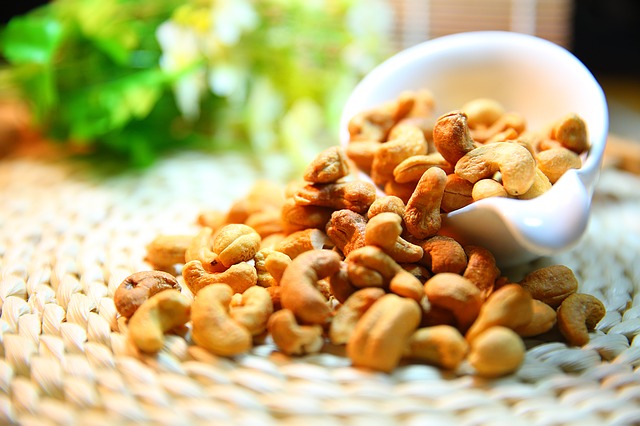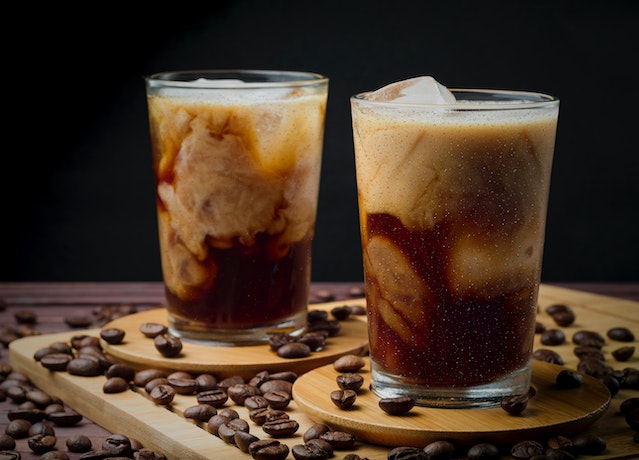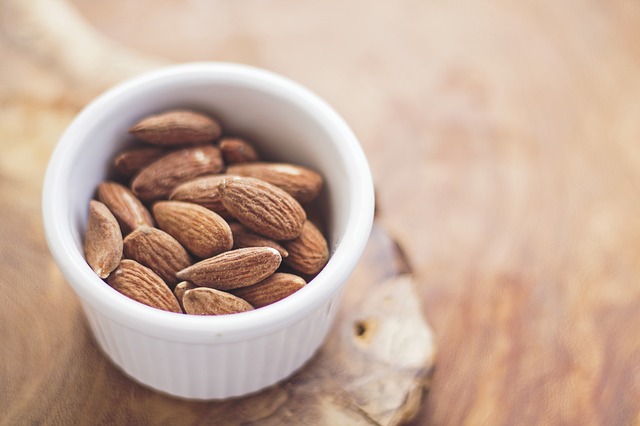Cashews are probably my favorite nut. Cashew nuts are closely related to the mango, the pistachio nut, poison ivy and poison oak. They are actually the seed of a fruit called the cashew apple.
Cashews are native to South America and are a tropical plant. They are also grown in Sri Lanka, China, Malaysia, the Philippines, Thailand, Colombia, Guatemala, Venezuela, the West Indies, Nigeria, Mozambique, Tanzania, and Kenya.
Cashew apple by Young in Panama
There are few place in the US where cashew trees grow well (although I found an organic farm in California-Braga Organic Farm, in my search with a very good reputation). Instead the USA is one of the largest importer of cashew nuts. They were first spread from Brazil by the Portuguese in the 16th century.
Nutritional Value of Cashews
Cashews are high in magnesium, with 83 mg in 1 oz., about 20 percent of the daily recommended intake. Magnesium is essential for good sleep and protects against high blood pressure, muscle spasms, migraine headaches, tension, soreness and fatigue.
Other minerals in raw cashews include:
- iron
- potassium
- phosphorus
- manganese
- calcium
- copper
- selenium
- zinc
The high copper content helps the body utilize iron, eliminate free radicals, develop bone and connective tissue, and produce the skin and hair pigment melanin. Vitamins in raw cashews include vitamins K, B6 and E, pantothenic acid, folate, niacin and thiamin.
Raw cashews are high in phytosterols, which lower LDL cholesterol and may help prevent cancer. The antioxidant carotenoids beta-carotene, beta-cryptoxanthin, lutein and zeaxanthin are present in cashews.
The monounsaturated fat oleic acid found in cashews lowers blood triglyceride levels and boosts heart health.
Research has also shown that chemicals in cashew nuts kill gram positive bacteria, a pervasive mouth affliction that causes tooth decay, acne, tuberculosis and leprosy.
Things to Consider About Cashews
“Raw” cashew nuts are not usually truly raw. Most companies label it “raw” because to them, the nut has “not” been processed or: roasted. But inn the process of removing the actual shell the nut is usually steamed and boiled in oil, which is actually a form of processing.
This is because there is a toxic resin inside the shell layer and if the shell is not opened properly, the resin will get on the cashew nut, making it inedible. Most companies steam the shell open at a high temperature, thus cooking the cashew nut inside.
A certain nut producer in Indonesia uses a special technique with specially-designed tools (without using any heat at all) to open the shell cleanly every time without ever exposing the cashew nut to the resin.
The raw cashews are much sweeter, tastier, and nutritious than their cooked counterparts (although I have never tasted them this way so I am taking the opinion of the writer at livingfoods.com).
How To Use Cashews
So with all these incredible benefits what is the best way to use cashews? Of course they are delicious just eaten raw or roasted with some salt. I love them in stir fries added in at the last minute, so they don’t get soggy. They are good with chicken or pork and lots of veggies or without meat at all for a vegetarian option.
It is also possible to buy or make your own cashew butter. Vegan in the Freezer has a great recipe for making your own cashew butter. It can be eaten like almond or peanut butter.
Vegan in the Freezer also has a great looking recipe for cashew pralines. I have not tried it but it looks amazing.
They can also be used topically in a nut extract. A Philippine scientist who has made a career out of studying the health benefits of cashew nut extract markets the extract in a cream for warts, moles and other skin growths.
The Philippine-produced cream is also reportedly effective on basal cell carcinoma, the most common type of skin cancer, though this too is not yet available in the U.S.
- Are Pasteurized Almonds Good or Bad? - January 31, 2022
- Nutrition of Peanuts - November 20, 2013
- Happy With Hickory Nuts - November 13, 2013



Fun!
I absolutely love cashews! Cashew butter is one of my favorite things! They are also high in tryptophan…which as you know is a precursor to serotonin. So they really are a “feel good” food! 🙂
I love cashews and am just starting to use them more. Have you ever made or used cashew milk? A friend just told me about it as an alternative to milk, but I know nothing else about it.
I have not made cashew milk but have read about it as well. What slows me down is the price because you do need a fair amount of cashews to make that but otherwise I think it would be good.
The price is my hesitation too!